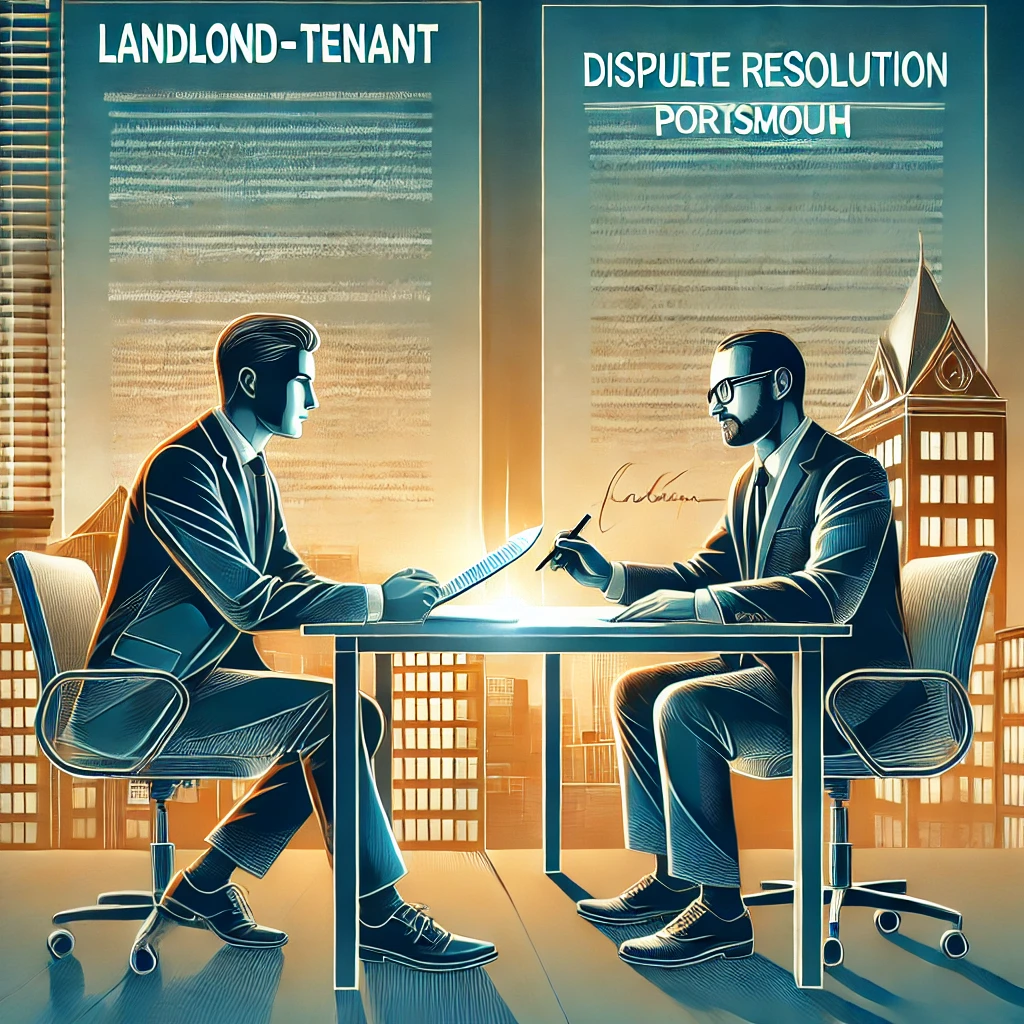
A Comprehensive Guide to Landlord Obligations in Portsmouth
1. Legal Requirements for Landlords in Portsmouth

Obtaining necessary licenses and certifications
Landlords in Portsmouth must obtain the appropriate licenses and certifications to legally operate their rental properties. The Portsmouth City Council requires landlords to possess a Houses in Multiple Occupation (HMO) license for properties housing three or more unrelated individuals. Additionally, landlords should acquire certifications for gas safety, electrical safety, and energy performance.
Compliance with local housing regulations
Portsmouth has specific housing regulations that landlords must adhere to. These include maintaining proper waste management systems, ensuring adequate living space for tenants, and complying with fire safety standards. Landlords should familiarise themselves with the Portsmouth City Council’s housing standards and regularly review their properties to ensure compliance.
Understanding tenant rights and protections
Landlords must be well-versed in tenant rights and protections as outlined in the Housing Act 1988 and subsequent legislation. This includes respecting tenants’ right to quiet enjoyment of the property, providing adequate notice before entering the premises, and following proper procedures for rent increases and evictions.
2. Property Safety and Maintenance Responsibilities

Regular safety inspections and risk assessments
Conducting regular safety inspections and risk assessments is crucial for landlords in Portsmouth. This involves checking for potential hazards such as loose electrical wiring, faulty appliances, or structural issues. Landlords should maintain a schedule for these inspections and document their findings to demonstrate due diligence.
Addressing repairs and maintenance issues promptly
Prompt attention to repairs and maintenance issues is essential for landlords. This includes fixing leaky pipes, addressing mould growth, and repairing or replacing faulty appliances. Landlords should establish a system for tenants to report issues and respond in a timely manner to maintain the property’s condition and ensure tenant satisfaction.
Ensuring proper fire safety measures
Fire safety is a critical responsibility for landlords in Portsmouth. This includes installing and maintaining smoke alarms on each floor of the property, providing fire extinguishers in accessible locations, and ensuring clear escape routes. Landlords should also conduct regular fire risk assessments and address any identified issues promptly.
3. Financial Obligations and Tenant Deposits

Managing and protecting tenant deposits
Landlords in Portsmouth must protect tenant deposits in a government-approved tenancy deposit scheme within 30 days of receipt. They should provide tenants with information about the scheme used and comply with the regulations regarding deposit returns at the end of the tenancy.
Handling rent collection and arrears
Establishing a clear rent collection process is crucial for landlords. This includes setting up a reliable payment system and maintaining accurate records of rent payments. In cases of rent arrears, landlords should follow proper procedures, including sending formal notices and considering mediation before pursuing legal action.
Paying relevant taxes and insurance
Landlords must fulfil their tax obligations, including declaring rental income and paying income tax as required. Additionally, obtaining appropriate landlord insurance is essential to protect against potential risks such as property damage or liability claims.
4. Energy Efficiency and Environmental Considerations

Meeting minimum energy efficiency standards
Portsmouth landlords must ensure their properties meet the Minimum Energy Efficiency Standards (MEES). As of April 2020, rental properties must have an Energy Performance Certificate (EPC) rating of at least ‘E’ to be legally let. Landlords should assess their properties and make necessary improvements to meet these standards.
Providing Energy Performance Certificates (EPCs)
Landlords are required to provide tenants with a valid Energy Performance Certificate before the tenancy begins. This certificate offers information about the property’s energy efficiency and recommendations for improvements. Landlords should ensure their EPCs are up to date and readily available for prospective tenants.
Implementing eco-friendly practices
While not legally required, implementing eco-friendly practices can benefit both landlords and tenants. This may include installing energy-efficient appliances, improving insulation, or encouraging recycling. Such measures can reduce utility costs and appeal to environmentally conscious tenants.
5. Tenancy Agreement and Documentation

Creating comprehensive tenancy agreements
Landlords should create clear and comprehensive tenancy agreements that outline the terms and conditions of the tenancy. This document should cover aspects such as rent amount, payment schedule, tenancy duration, and specific rules or restrictions. It is advisable to seek legal advice to ensure the agreement is fair and legally compliant.
Providing necessary information to tenants
Landlords must provide tenants with certain information at the start of the tenancy. This includes the government’s ‘How to Rent’ guide, gas safety certificates, EPCs, and details of the deposit protection scheme used. Failure to provide this information can impact a landlord’s ability to serve certain notices in the future.
Maintaining accurate records and documentation
Keeping accurate records is crucial for landlords. This includes maintaining copies of all agreements, certificates, and correspondence with tenants. Proper documentation can protect landlords in case of disputes and demonstrate compliance with legal obligations.
6. Landlord-Tenant Communication and Dispute Resolution

Establishing clear communication channels
Effective communication is key to a successful landlord-tenant relationship. Landlords should establish clear channels for communication, whether through email, phone, or a dedicated online portal. Regular check-ins and prompt responses to tenant inquiries can help prevent misunderstandings and maintain a positive relationship.
Addressing tenant complaints and concerns
Landlords should have a system in place for addressing tenant complaints and concerns. This involves listening to tenants, investigating issues thoroughly, and taking appropriate action in a timely manner. Documenting these interactions can be helpful in case of future disputes.
Following proper procedures for evictions and disputes
In cases where eviction becomes necessary, landlords must follow the proper legal procedures. This includes serving the correct notices and allowing the required notice periods. For disputes, landlords should consider mediation or alternative dispute resolution methods before resorting to legal action.
Summary
Being a landlord in Portsmouth comes with significant responsibilities. From legal compliance and property maintenance to financial management and tenant relations, landlords must navigate a complex landscape of obligations. By understanding and fulfilling these responsibilities, landlords can create a positive rental experience for their tenants while protecting their investments and complying with local regulations.
Frequently Asked Questions
What are the key responsibilities of landlords in Portsmouth?
Key responsibilities include obtaining necessary licenses, ensuring property safety, protecting tenant deposits, meeting energy efficiency standards, providing required documentation, and maintaining clear communication with tenants.
How often should safety inspections be conducted?
While there is no legally mandated frequency for general safety inspections, it is recommended to conduct them at least annually. However, gas safety checks must be performed annually, and electrical safety checks every five years.
What are the consequences of non-compliance with landlord obligations?
Consequences can include fines, legal action, inability to evict tenants, and potential criminal charges in severe cases. Non-compliance can also damage the landlord’s reputation and lead to difficulties in attracting future tenants.
Navigating landlord responsibilities can be complex, but NEXA Properties is here to help. Our expert team ensures you stay compliant with regulations while maximizing your rental income. Whether you need property management, tenant sourcing, or legal guidance, we’ve got you covered. Contact NEXA Properties today and let us take the stress out of being a landlord in Portsmouth!